Are you contemplating a career in real estate in Michigan but feeling overwhelmed by the many steps involved? You’re not alone; many aspiring agents share your concerns. With the right preparation and understanding of the market, you can successfully navigate the path to becoming a licensed real estate professional.
To embark on your journey, you’ll first need to meet several licensing requirements. This includes completing a 40-hour pre-licensing course and passing the state examinations. As you weigh your options, consider whether you want to affiliate with a franchise or an independent brokerage, each offering distinct commission structures and training programs.
Your ultimate success in this competitive field will hinge on your ability to build a robust professional network, stay informed about local market trends, and hone your expertise in specific areas, ultimately positioning you to capitalize on the promising growth of Michigan’s real estate market.
Key Highlights
- Complete the 40-hour pre-licensing course and pass the PSI examination through the MiPLUS system to obtain your Michigan real estate license.
- Choose between franchise or independent brokerages based on their training programs, commission structures, and support services that align with your goals.
- Focus on building relationships through networking events and community involvement, as a significant portion of transactions comes from referrals.
- Study local market trends, particularly in regions like Detroit and Grand Rapids, to provide informed guidance to clients.
- Develop expertise in specific market segments, such as luxury properties or urban transactions, to enhance your earning potential beyond the state average.
Meeting Michigan’s Licensing Requirements
To qualify for a real estate license in Michigan, you must meet several key criteria: you need to be at least 18 years old, a U.S. citizen or legal resident, and possess a valid high school diploma. Additionally, having a Social Security number and passing a moral character evaluation, which includes a background check, is essential.
The Owner Advocate Program can also serve as a valuable resource for understanding market dynamics as you begin your career. Moreover, becoming familiar with the cash offer process can help you better serve clients looking to sell their homes quickly.
The journey begins with completing a pre-licensing course that totals 40 hours. This curriculum includes 4 hours dedicated to civil rights and equal housing, ensuring you are well-versed in crucial ethical considerations. The remaining 36 hours delve into vital topics such as contracts, financing, and ethics—fundamental knowledge for any successful agent.
Once you have completed your coursework, it’s time to submit your application through the MiPLUS system, along with an $88 fee. However, if you’re a veteran, you might qualify for a fee waiver—a valuable benefit that can ease your financial burden. The review process for your application typically takes between 2 to 5 business days, after which you will receive authorization to take the licensing examination administered by PSI.
This exam is comprehensive, featuring both state and national components, and is designed to evaluate your readiness for the real estate profession. To enhance your prospects, consider seeking expert assistance from a local Auburn Hills Realtor, who can provide valuable insights into the market.
Understanding these requirements not only prepares you for the licensing process but also sets the foundation for a successful career in real estate. By taking the time to familiarize yourself with these steps, you can avoid common pitfalls and enhance your chances of succeeding in this competitive field.
Selecting the Right Real Estate Brokerage
Choosing the right real estate brokerage can be the defining moment in your career after obtaining a Michigan real estate license. The decision you make now has the potential to shape your professional trajectory, impacting everything from your growth potential to your income opportunities. Selecting a brokerage that aligns with your goals and working style is essential to avoid becoming a statistic.
As you embark on this journey, consider the following critical factors:
- Franchise vs. Independent: National franchises often come with established systems and brand recognition that can provide a head start in attracting clients. In contrast, independent brokerages may offer greater flexibility and more personalized community connections, allowing you to carve out a unique niche in the market. For example, local expertise in Oakland and Macomb Counties can enhance your ability to serve clients effectively.
- Training Programs: The quality of training can vary significantly. Some brokerages provide structured mentoring opportunities, while others may leave you to navigate the complexities of the industry on your own. For instance, a brokerage that emphasizes hands-on training can help you build your skills more effectively than one that relies solely on self-directed learning.
- Commission Structures: Most new agents begin with commission splits around 50/50, but the potential for enhanced rates based on performance can be a game changer. Understanding the fee structures will help you accurately project your income and plan your business strategy.
- Support Services: The level of support you receive can dramatically influence your success. Brokerages may offer anything from basic office tools to comprehensive marketing assistance and lead generation strategies. For example, a brokerage that provides robust marketing resources can help you establish a strong online presence quickly, leading to more client engagement. Additionally, opting for a brokerage with a low-rate home selling program can significantly enhance your competitive edge in the market.
- Culture and Values: The brokerage’s culture and values will directly affect your daily operations and long-term career development. Aligning with a brokerage that shares your professional ethos can foster a more satisfying work environment and better collaboration with colleagues.
Ultimately, the brokerage you choose will play a pivotal role in your real estate career. A thorough evaluation of these factors is not just advisable; it’s essential to ensure that you forge a partnership that will benefit both you and your brokerage in the long run. By taking the time to assess these elements carefully, you can position yourself for success in the competitive real estate market.
Building Your Professional Network
Building a robust professional network is not just a luxury; it’s a necessity for anyone looking to thrive in the competitive real estate market in Michigan. These connections can provide invaluable referrals and insights that can make or break your career.
To cultivate these relationships, attending industry events such as real estate conferences, trade shows, and professional association meetings is crucial. These gatherings not only provide opportunities to meet peers but also potential clients. For instance, actively participating in local community activities—whether it’s volunteering at school events or hosting open houses—can significantly enhance your visibility and reputation within your market area.
In addition to face-to-face interactions, leveraging digital tools and online platforms can amplify your networking efforts. Utilizing customer relationship management (CRM) systems and engaging with clients and colleagues on social media enables you to maintain consistent communication and stay top-of-mind.
Furthermore, seeking mentorship from seasoned agents and participating in industry webinars can equip you with the knowledge to navigate complex transactions and generate leads effectively.
Understanding Michigan’s Real Estate Market
Navigating Michigan’s real estate market can feel overwhelming, especially for new agents looking to establish themselves in a competitive landscape. With projected price increases of 3.4% by March 2025 and a year-over-year inventory rise of 7.7%, understanding these dynamics is crucial for success. For example, the sale-to-list price ratio in Detroit stands at 96.94%, which highlights the importance of strategic pricing and the growing trend of homes undergoing price reductions.
In this competitive environment, homes are spending an average of 37 days on the market statewide, but major cities like Detroit and Grand Rapids see that number drop to just 26-27 days. This illustrates the urgency for agents to act swiftly and effectively when working with clients.
New construction is on the rise, with housing permits increasing by 6.3%. This growth creates unique opportunities in developing areas, allowing savvy agents to position themselves in emerging markets with fresh inventory.
In the luxury sector, over 2,300 sales are projected for 2025, indicating a ripe opportunity for agents to connect with high-end clients. However, they must be prepared for multiple offer situations, especially in competitive regions like Lansing, where demand is particularly high.
West Michigan’s average sale price has risen by 5%, reflecting the region’s strength and growth potential. This is an encouraging sign for agents aiming to capitalize on the area’s real estate opportunities.
Maximizing Income Potential and Career Growth
The success of agents in this industry often hinges on strategic decisions that can dramatically impact earnings. To build a lucrative career, it’s essential to focus on niche markets. Whether you’re closing high-volume transactions in bustling urban areas or selling luxury properties in affluent neighborhoods, carving out a specific area of expertise can lead to increased income.
Selecting the right brokerage is equally crucial; established firms often provide invaluable training, advanced technology tools, and attractive commission splits. Experienced agents can negotiate favorable terms, sometimes securing commission splits of 80-20, which can significantly enhance their net earnings.
Furthermore, a strong client base is vital for sustained income growth. This can be achieved through consistent networking, cultivating a robust online presence, and adapting to the ever-changing market landscape. Top-performing agents often diversify their income streams by venturing into commercial real estate and exploring opportunities in various geographic regions, creating a buffer against economic fluctuations.
In this competitive environment, understanding these strategies and implementing them effectively can set you on a path to not only meet but exceed your income goals. The journey may be challenging, but with the right approach, the rewards can be substantial.
In Summary
A successful career in Michigan real estate requires a strong commitment to continuous learning and adaptability in a competitive market. It is essential for agents to thoroughly understand licensing requirements and select a brokerage that offers solid support and resources.
Building robust professional networks is crucial, as these connections can lead to valuable opportunities and insights. Agents who prioritize technology and deliver outstanding service can create a thriving business, even amidst market challenges.
At The Collective Agency, we pride ourselves on being the premier choice for selling homes in Michigan. Our team, led by Ben Lang, is dedicated to helping you navigate the complexities of the real estate market with expertise and personalized service.
We focus on professional growth and understanding market dynamics to ensure our clients achieve their real estate goals. Trust us to provide the solutions you need to succeed in this dynamic industry, as we leverage our skills to benefit your home-selling experience.






